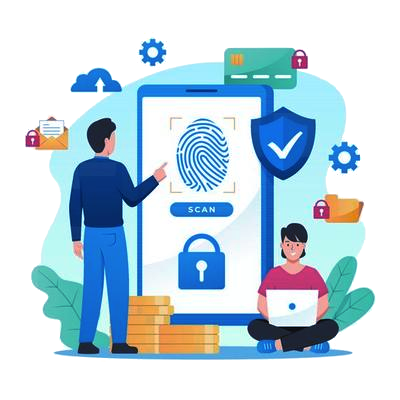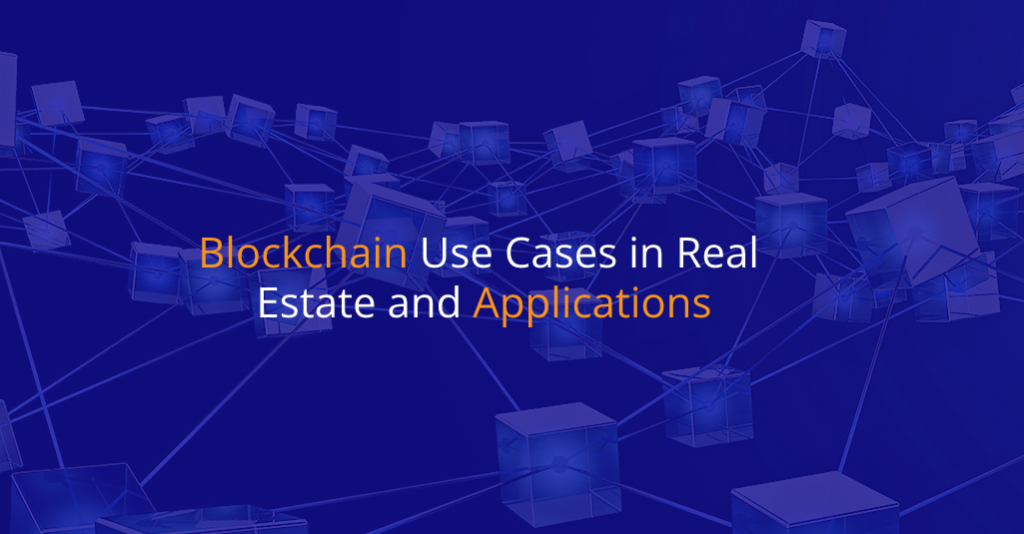Have you heard about the advantages of implementing blockchain in real estate? Or do you still feel that this technology will be useless to traditional businesses?
Indeed, blockchain development trends have evolved and are on the increase in the real estate market in recent years. This technology brings all kinds of innovations and benefits. The scope is broad, ranging from increasing the security of buy and sell transactions to automating property management and adopting more intelligent decision-making.
As a result, blockchain has the potential to alter the commercial real estate industry, making it more modern and inventive. In this post, we will show you how your real estate firm may benefit from blockchain adoption before your competition.
Why Should You Be Concerned About Using Blockchain in Real Estate?
If you’re still unsure about the genuine influence of blockchain on the real estate business in the next years, take a look at these data. This allows you to completely comprehend the technology’s capabilities.
Companies from diverse sectors spent around $6.6 billion in 2021 to adopt blockchain technology in their processes. It is over 50% higher than in 2020.
But that is not when blockchain investments will slow. According to research, global investment in this innovation would increase by an average of 48% every year from 2020 to 2024. It reflects the fast global usage of blockchain technology.
Many other sectors, by the way, have begun to use this technology to increase the efficacy of their services and save money.
Why Should You Be Concerned About Using Blockchain in Real Estate?
If you’re still unsure about the genuine influence of blockchain on the real estate business in the next years, take a look at these data. This allows you to completely comprehend the technology’s capabilities.
Companies from diverse sectors spent around $6.6 billion in 2021 to adopt blockchain technology in their processes. It is over 50% higher than in 2020.

But that is not when blockchain investments will slow. According to research, global investment in this innovation would increase by an average of 48% every year from 2020 to 2024. It reflects the fast global usage of blockchain technology.
Many other sectors, by the way, have begun to use this technology to increase the efficacy of their services and save money.
The Top 8 Blockchain Use Cases in Real Estate
We already know that blockchain development solves fundamental difficulties in the real estate market, providing previously imagined communication and security among real estate enterprises.
But first, let’s look at some real-world instances of blockchain applications in real estate and the commercial outcomes they bring:
1. Marketing information management

Tokens indicate a certain number of shares for certain real estate assets that may be issued, purchased, and sold using cryptocurrency on blockchain systems. It expedites property sales and decreases the obstacles to crowdfunding.
It is worth noting that the barrier for regular property investors is lessened by this approach. Overseas commercial real estate investing also becomes more manageable. Simply, properties may now be exchanged on exchanges like stocks.
Because of its capacity to boost real estate liquidity, blockchain has the potential to change the whole commercial property market.
2. Smart Contracts
Among the most valuable blockchain technologies are smart contracts, which are extremely advantageous to the banking and finance industries. This technology may also benefit the real estate market, which must manage multiple transactions.
The transactions are fully automated and involve very little human participation. Everything constructed on the blockchain becomes self-executive once activated. The principals concerned put in less time and effort, not to mention lower expenses and no risk of fraud.
3. Security and Control Over Transactions
Blockchain applications in real estate can help lower the danger of fraud. You may be dealing with someone seeking to purchase property from you, or you may be attempting to purchase property from them.
Because blockchain eliminates the potential of anything unethical, property transfers no longer need to go via third parties.
When considering how to use blockchain in real estate, one of the first things that come to mind is how to use it to speed payments and increase the security of real estate transactions.

Financial and payment systems will become safer and more transparent when blockchain technology is integrated internationally. They will be saved so that any side can refer to them whenever they want.
4. Property Management Automation
The application of blockchain technology in real estate will reduce the need for human documentation and the usage of various software systems. All of this will be replaced with blockchain technology for improvement and advancement.
A single decentralized application powered by blockchain-backed smart contracts would streamline the whole property administration process. It will result in lower expenditures and less time spent on administrative activities.
5. Transparent Data Tracking and Analysis
Blockchain employs ledger technology that is immutable as long as the network is operational. As a result, all data about the property or the building’s history is documented, easily accessible, and visible to all future owners and investors. Blockchain technology has the potential to make real estate investing more equitable for all parties involved.
Furthermore, using blockchain technology and big data allows for more precise tracking of customer and owner histories across borders and banks. It reduces the likelihood of default. Real estate players using big data may now better examine the information and make data-driven decisions.
6. Shared Ownership and Investment
Real estate is being transformed by blockchain technology, which allows for fractional ownership and investment. Buying real estate necessitates a substantial investment, especially considering the continual growth in property values. Using the blockchain, investors may combine their resources and purchase a portion of a property that they would not be able to afford otherwise.
Furthermore, shared ownership allows investors to sell their ownership part at any time. It also helps them to avoid self-management of real estates, such as property upkeep or leasing, which typically involves significant work.
7. Access to Secondary Market Opportunities

By offering access to the secondary market, tokenizing real estate assets generate opportunities. It is made feasible by digitally replicating any asset, cutting transaction costs, and making it available globally.
The use of blockchain in real estate allows you to convert illiquid assets into liquid ones, attracting more investors. As a consequence, anybody may purchase a digital asset or a portion of one and then sell it on the secondary market.
8. Global Asset Distribution
Most of what we discussed above, such as real estate tokenization, higher liquidity, smart contracts, and improved transaction transparency, is even more relevant when seen in a broader context. Blockchain initiatives have no bounds.
This technology enables the development of a global property buying and selling system with tools that are intelligible to clients and sellers globally. Smart contracts will allow you to automate all sales transactions and validate them in real-time.
Regardless of business hours or weekends, all blockchain transactions are performed almost instantaneously. As a result, blockchain technology eliminates territorial limits and provides a worldwide mechanism for selling property.
Final Thoughts
Every year, blockchain in real estate becomes more important. We recommend that you put it into action right now. Here, we can assist you in developing a blockchain-based real estate solution.
At iStudio Technologies, we have extensive experience developing various types and levels of complexity in real estate software and apps. We can help you figure out the optimal mix of functionality, progressive stack technologies, and intuitive design that satisfies all purposes for your solution by combining it with our experience in bespoke blockchain development.



